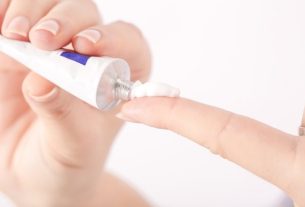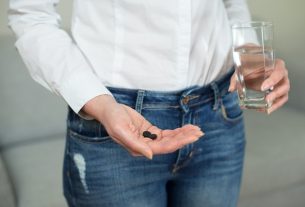Venvanse is a central nervous system stimulant, indicated for the treatment of attention deficit hyperactivity disorder (ADHD) or binge eating disorder (BCD), as it contains lisdexamfetamine dimesylate, a type of amphetamine that acts on the brain, improving attention, impulsivity or binge eating.
This medicine is found in pharmacies or drugstores, in the form of capsules, containing 30, 50 and 70 mg of lisdexamfetamine dimesylate, with the reference name Venvanse or with the similar name Juneve, sold only with a medical prescription and retention of the prescription by the pharmacy .
Venvanse can be indicated for adults or children, and should only be used with medical advice, in the doses and treatment time recommended by the doctor, according to the person’s age and the condition being treated.
What is it for
Venvanse is indicated for the treatment of:
- Attention deficit hyperactivity disorder (ADHD)in children over 6 years of age, adolescents or adults;
- Binge eating disorder (BED)in adults over 18 years of age.
This medicine acts on the brain, improving alertness and concentration, and reducing impulsivity in people with ADHD, or reducing episodes of binge eating in cases of BAD.
Does Vyvanse increase concentration?
Venvanse helps increase concentration and attention related to attention deficit hyperactivity disorder, which is a condition that causes lack of or difficulty paying attention to day-to-day activities and can often harm school performance in children over the age of 6 years.
However, Venvanse is not indicated for other health conditions that can cause decreased concentration, attention or memory, such as stress, anxiety, depression, hypothyroidism or vitamin deficiency, for example. See the main causes of memory loss and how to treat it.
Therefore, it is important that a general practitioner or neurologist is consulted to diagnose the cause of the lack of concentration and indicate the most appropriate treatment.
Does Vyvanse lose weight?
One of the most common side effects of this medication is weight loss and decreased appetite, reducing food intake. Therefore, some people who take Vyvanse may lose weight.
Furthermore, Vyvanse can also lead to weight reduction in people with binge eating disorder, as it reduces binge episodes, which means the person eats fewer calories during the day.
How to take and dosage
The Venvanse capsule must be taken orally, in the morning, with or without food, whole or dissolved in a pasty food, such as yogurt, or in a liquid, such as water or orange juice, and must be consumed immediately after preparation. . This medicine should not be taken in the afternoon or at night because it can harm sleep, causing insomnia.
The dosage of Venvanse for the treatment of ADHD in children over 6 years of age or TCA in adults over 18 years of age depends on the therapeutic need and each person’s response to treatment, but generally the recommended initial dose is 30 mg, 1 time per day.
The dose of Vyvanse can be increased by the doctor, up to a maximum of 70 mg per day. In people with severe renal impairment, the maximum dose should not exceed 50 mg per day.
It is important to follow medical instructions regarding doses and treatment time, and you should not interrupt treatment on your own.
Possible side effects
The most common side effects that may occur during treatment with Vyvanse are dry mouth, loss of appetite, insomnia, headache, stomach pain, nausea, vomiting, diarrhea, constipation, or feeling nervous.
In addition, Venvanse can cause serious side effects, such as agitation, hallucinations, paranoia, excessive sweating, fever, chills, muscle stiffness or spasms, lack of motor coordination, rapid heartbeat, shortness of breath, purple nails or fingers, feeling of tight throat, swelling in the mouth, tongue or face. In these cases, you should seek medical help or the nearest emergency room immediately.
Can Vyvanse cause addiction?
Vyvanse, when used without a doctor’s supervision or in large quantities, can cause tolerance, which means that the body needs increasingly larger doses to obtain the desired effect, causing physical or psychological dependence.
Like other types of amphetamines, abuse of Vyvanse can also cause withdrawal symptoms such as fatigue and depression.
Who shouldn’t use
Venvanse should not be used by pregnant or breastfeeding women, or by people who have advanced arteriosclerosis, symptomatic cardiovascular disease, moderate to severe high blood pressure, hyperthyroidism, glaucoma, agitation states and people with a history of drug abuse.
Furthermore, Venvanse should not be used by children under 6 years of age for the treatment of attention deficit hyperactivity disorder (ADHD), or by children under 18 years of age for the treatment of binge eating disorder (BED).
Venvanse should also not be used by people who are allergic to lisdexamfetamine dimesylate, or who are being treated with monoamine oxidase inhibitor drugs (MAOIs), such as isocarboxazid, phenelzine, moclobemide, iproniazid or tranylcypromine, for example. or who have been treated with these medications in the last 14 days.

Sign up for our newsletter and stay up to date with exclusive news
that can transform your routine!
Warning: Undefined array key "title" in /home/storelat/public_html/wp-content/plugins/link-whisper-premium/templates/frontend/related-posts.php on line 12
Warning: Undefined array key "title_tag" in /home/storelat/public_html/wp-content/plugins/link-whisper-premium/templates/frontend/related-posts.php on line 13




